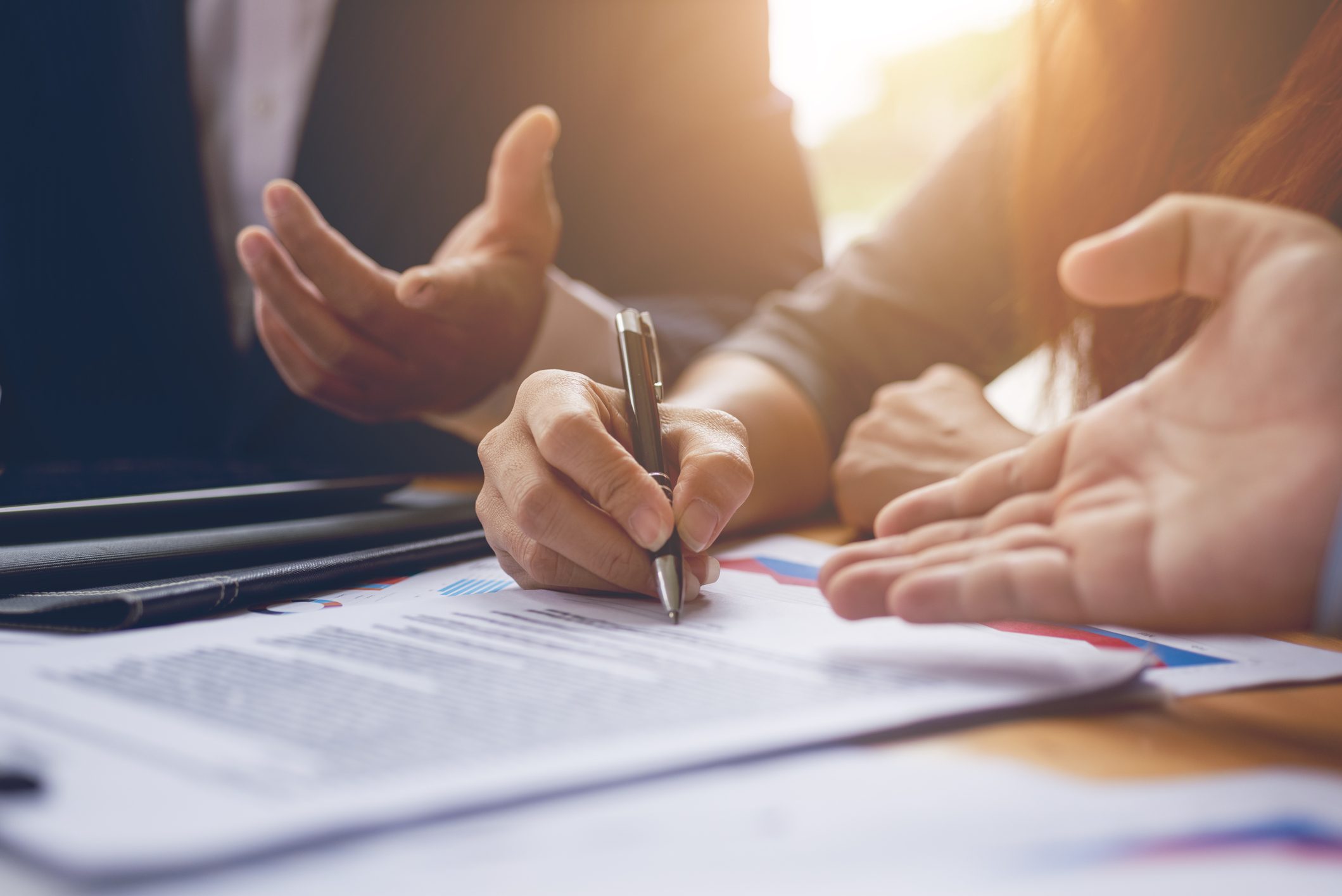- People
- Expertise
Our expertise
We are a team of more than 500 professionals, with the depth of experience which makes us genuine experts in our fields. Together, gunnercooke’s people have strength across just about every corporate discipline and sector. We provide legal, commercial and strategic advice that delivers real value to the clients we work with, which span from multinational enterprises through to unicorns and non-for-profit organisations. Our breadth of expertise covers some of the most interesting and important emerging disciplines, from ESG and charity law, to blockchain and competition.
Search by practice areaDispute ResolutionDispute Resolution OverviewMeet the Dispute Resolution TeamIntellectual Property DisputesFinancial Services & FinTech OverviewProceeds of CrimeEmployment TribunalTax InvestigationProperty Dispute ResolutionInsolvency DisputesMediationCivil Fraud & Asset TracingHealth & SafetyBusiness Crime & InvestigationsLitigation & ArbitrationInternational Arbitration - International
International Offices
The gunnercooke group has 15 main global offices across England, Scotland, the US, Germany and Austria, with further plans for growth in the coming years. These offices enhance the existing in-house capability of our dedicated international teams and dual-qualified experts that cover Spain, France, Italy, Portugal, Brazil, China, India, Poland and Hungary. Our team have clients across 123 jurisdictions, speak 46 languages and are dual-qualified in 21 jurisdictions. Our expertise means we can offer large teams to carry out complex cross-border matters for major international clients.
- Our story
Our story
gunnercooke is the fastest growing corporate law firm in the UK, now making its mark globally. We comprise a rapidly growing number of experts spanning legal and other disciplines. Clients benefit from flexible options on fees to suit their needs, access to a wider network of senior experts throughout the relationship, and legal advice which is complemented by an understanding of the commercial aspects of running a business.
- Reading Room
- News & Insights

Menopause and disability discrimination
Whilst menopause is not of itself a disability, the case of Lynskey v Direct Line serves as a reminder that it can qualify as a disability where the symptoms are significant.
Ms Lynskey was employed as a Telesales Consultant with Direct Line and in the first years of her employment, her performance has good. In 2019, Ms Lynskey began to suffer from menopausal symptoms which included anxiety, poor memory and difficulty concentrating. These had a negative impact on her performance. She discussed this with her line manager who agreed she could move to a different role. Ms Lynskey was also given weekly coaching sessions. No occupational health referral was made.
Despite these changes, Ms Lynskey continued to struggle with her symptoms and in her next performance review she was assessed as ‘need for improvement’.
In April 2021, the employer began to formally performance manage Ms Lynskey and she given a disciplinary warning. During the process, Ms Lynskey went off sick with stress. She was referred to occupational health, who went on to tell Direct Line that she was likely to qualify as a disabled person under the Equality Act 2010.
Lynskey resigned in May 2021 and went on to bring various claims including disability discrimination and a failure to make reasonable adjustments.
Outcome
The tribunal held that Direct Line had failed to give consideration to Ms Lynskey’s disability and whether reasonable adjustments would negate or reduce the performance concerns before making the decision to discipline her. Such adjustments included reducing performance targets, changing role, or deciding not to progress a formal disciplinary process at all. Whilst there was a referral to Occupational Health in 2021, this should have happened when Ms Lynskey made her manager aware of her menopausal symptoms in 2019. The tribunal also found that Direct Line could have made a number of different reasonable adjustments which would have supported Ms Lynskey’s performance, such as reducing performance targets, considering a transfer to a different role, or abandoning the disciplinary process altogether.
The Employment Tribunal awarded Ms Lynskey £64,645, including an award of £2,500 for aggravated damages.
Summary
As soon as a business becomes aware that an employee is suffering menopausal symptoms which affect their ability to perform at work, it should consider the possibility they have a disability, and take steps to ensure they are not subjected to unfavourable or less favourable treatment. Make a referral to occupational health at the earliest opportunity and explore whether there are any reasonable adjustments available to remove or alleviate any disadvantage.
Defamatory employment references
The case of Smith v Surridge and Others deals with employment references, and the care employers need to take when providing them.
There is no obligation on a business to provide an employee with a reference. If a reference is given, it should be factually correct and objective. It should not be incorrect, deliberately misleading or malicious. Schools and colleges have an additional duty to disclose the fact that an employee has been subject to capability procedures and reference any safeguarding concerns and action taken in respect of these (even if no action was taken).
Two teachers were employed at the same school for 4 years. When they left employment they registered with an employment agency and subsequently received conditional offers of employment, subject to references. The agency required confirmation of dates of employment, role and confirmation there were no safeguarding issues. The question to the school in the form was:
The reference received contained the following statement:
‘However, I would like to inform you that there were some safeguarding issues during their time at Stanborough School. We will fill in the forms you have sent us in detail and send these to you shortly.’
The teacher denied that there were any safeguarding issues from their time at the school. As a result of this reference, the job offers were withdrawn. Both teachers issued proceedings in the High Court for libel, misuse of private information and negligent misstatement.
The teachers argued that the wording of the references implied that they had abused or maltreated pupils, which they denied. The school said that the references should be viewed in the context of a series of emails regarding the references, and that the language reflected the wording in the original reference request. The questions posed in the form were wide, and requested confirmation of mere “concerns”, not just proven matters and allegation.
Outcome
The High Court held that the hypothetical reader would have taken the reference at face value, and that the words used implied that the teachers had done something that gave rise to a safeguarding issue. His Honour Judge Lewis stated:
“I find that the meaning of the Reference in respect of each claimant is:
During the time when she worked at the School, she did something that gave rise to a safeguarding issue, namely something that either caused harm to a child, or placed a child at risk of harm.
This was defamatory.”
Key points
Usually the advice to employers is to provide basic information only, such as employment dates and job title. When providing anything more than a basic factual reference, it is important to ensure that the reference is true, fair and not misleading. This also applies to any information provided verbally. A failure to do so could lead to expensive claims for defamation and damages for loss of earnings. You should also bear in mind that ‘off the record’ conversations are disclosable in court proceedings and so are never actually ‘off the record’ at all!
Important case: Holiday Pay
On 4th October 2023 the Supreme Court issued its judgment in the hotly anticipated case of Chief Constable of Police Service of Northern Ireland v Agnew.
The Claimants were police officers and civilian staff working for the police in Northern Ireland. They brought claims for underpayment of holiday pay on the basis that compulsory overtime payments were not factored into the holiday pay calculation when they took annual leave. Instead, they received only basic pay. Ultimately, and following on from the other case law developing in this period, it was agreed between the parties that overtime payments should have been included in holiday pay. What remained at issue was how far back the Claimants were entitled to claim. The relevant Northern Irish legislation reflects the Employment Rights Act 1996 in that a claim for failure to pay holiday pay must be brought within three months of each alleged instance of underpaid holiday pay, unless the deduction was part of a series of deductions. Provided a claim is brought within three months of the last of the series of deductions, the other deductions can be linked.
However, case law has also established that deductions are not part of a series of deductions if there is gap of three months or more between them. For the claimants in Agnew, this meant that if they had a gap of more than 3 months between periods of annual leave (and therefore, between holiday payments) the chain was broken. This would mean that any underpayments in relation to holidays which pre-dated the break in the chain were not recoverable on the basis they were out of time.
Decision
The Supreme Court decided in favour of the claimants and declared that neither a gap of more than 3 months between unlawful deductions, nor a lawful payment, would automatically break a series of deductions. If the deductions are factually linked, the chain may not be broken and this would be a question of fact in each case. They noted:
‘What constitutes a series [of deductions] is a question of fact that must be answered in light of all the relevant circumstances’. In this case, ‘each unlawful underpayment was linked by the common fault that holiday pay had been calculated by reference to basic pay only’.
Key points
Employers facing claims for failure to calculate holiday pay incorrectly may not be able to rely on an argument that gaps of 3 months between deductions break the chain of a series of deductions. It will for a tribunal to assess all of the relevant factual circumstances and decide whether there has been such a break.
To contact Angela, or read more about her practice, click here.





